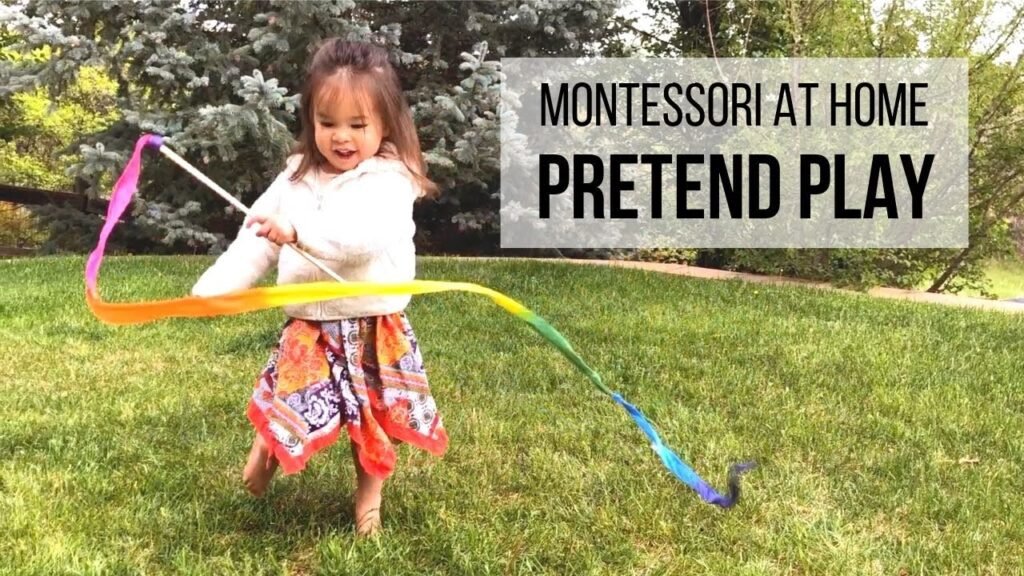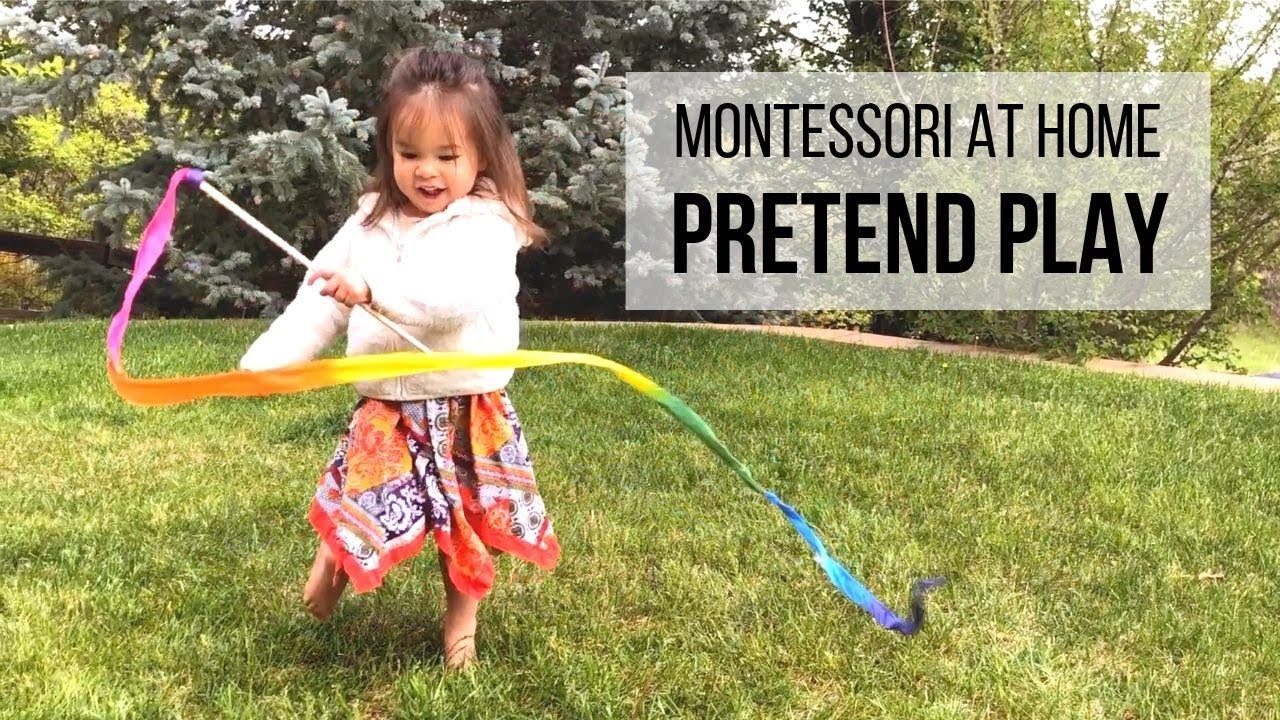Hey there! If you’re a parent navigating the world of Montessori at home, you might find it daunting at first. The idea of implementing Montessori philosophies with your children can be overwhelming, especially when it comes to incorporating pretend play and imagination in a Montessori setting. Children between the ages of 0-6 have a tough time distinguishing between fantasy and reality, which is why it’s essential to provide developmentally appropriate outlets for various types of pretend play. It’s all about finding a balance between fantasy and reality in a Montessori home environment.
As you explore the role of pretend play in Montessori at home, you’ll discover the importance of open-ended toys like wooden blocks and books with realistic pictures. Through pretend play based on everyday activities, children can engage in imaginative play while still staying rooted in reality. Remember, in a Montessori home setting, flexibility is key, allowing your child to lead the way in their imaginative play while providing them with reality-based materials to support their development.
Introduction
As a parent, trying to incorporate Montessori philosophies at home with your children can initially feel overwhelming due to the many specific details surrounding what makes up a Montessori environment. One significant aspect of a Montessori setting is the role of pretend play and imagination. In this article, we will delve into the importance of pretend play in a Montessori setting at home and how you can successfully integrate it into your daily routine.
Understanding Montessori Philosophy
Key Principles of Montessori Education
Montessori education is based on the belief that children are naturally curious and eager to learn. Key principles of Montessori education include fostering independence, respecting the child’s pace of learning, providing a prepared environment, and promoting hands-on, experiential learning.
Benefits of Implementing Montessori at Home
Implementing Montessori principles at home can have a significant positive impact on your child’s development. Benefits include fostering a love for learning, promoting creativity and imagination, enhancing problem-solving skills, and developing independence and self-regulation.
Role of Pretend Play in Child Development
Promotion of Imagination and Creativity
Pretend play allows children to explore their imagination, creativity, and problem-solving skills. It provides a safe space for them to experiment with different roles, scenarios, and emotions.
Enhancement of Social and Emotional Skills
Engaging in pretend play helps children develop important social and emotional skills, such as empathy, communication, cooperation, and conflict resolution. It also promotes self-regulation and the ability to understand others’ perspectives.

Incorporating Pretend Play in Montessori at Home
Developmentally Appropriate Outlets for Pretend Play
Providing developmentally appropriate outlets for pretend play involves allowing children to engage in activities based on real-life experiences, such as cooking, taking care of babies, cleaning, and exploring their environment.
Creating a Playful Environment
Creating a playful environment at home involves offering open-ended toys, such as wooden blocks and scarves, that allow children to use their imagination and creativity. Incorporating elements of reality into pretend play scenarios can enhance the child’s overall learning experience.
Recommended Toys for Pretend Play
Open-ended Toys like Wooden Blocks
Open-ended toys, like wooden blocks, can be versatile tools for pretend play in a Montessori home. Children can use these toys to build, create, and engage in imaginative scenarios that are grounded in reality.
Realistic Toy Versions of Everyday Objects
Providing realistic toy versions of everyday objects, such as kitchen utensils, gardening tools, and household items, can further enhance the child’s pretend play experiences. These toys allow children to mimic real-life activities and develop practical life skills.
Selection of Books in a Montessori Home
Importance of Realistic Pictures in Books
In a Montessori home, it is important to offer children books with realistic pictures or drawings of objects and activities they encounter in their daily lives. Realistic visuals help children connect to the world around them and aid in their understanding of reality.
Inclusion of Fictional Stories with Discussion on Reality
While realistic images are beneficial, including fictional stories in the book collection can also be valuable. However, it is essential to discuss the distinction between fiction and reality with children to help them differentiate between the two.
Parental Guidance in Imaginative Play
Following the Child’s Lead in Pretend Play
Parents should observe and follow the child’s lead in imaginative play, allowing them the freedom to explore their creativity and imagination. Encouraging children to express themselves through pretend play nurtures their cognitive and emotional development.
Balancing Fantasy with Reality in Play Materials
While fantasy play has its place, it is crucial to provide children with play materials that are grounded in reality. Finding a balance between fantasy and reality in the play environment can support holistic child development and foster a healthy imagination.
Challenges and Tips for Montessori at Home
Overcoming Obstacles in Implementing Montessori Philosophy
One challenge of implementing Montessori principles at home is navigating the balance between structure and flexibility. Finding ways to incorporate Montessori philosophies while adapting to the unique needs and preferences of your child can be a rewarding yet challenging journey.
Practical Tips for Successful Integration of Pretend Play
To successfully integrate pretend play in a Montessori home, consider setting up dedicated play areas, rotating toys to maintain interest, encouraging open-ended play, and actively engaging with your child during playtime. Providing a supportive and enriching environment can enhance your child’s learning and development.
Conclusion
In summary, pretend play plays a vital role in a Montessori environment at home. By promoting imagination, creativity, social skills, and emotional development, pretend play can enrich your child’s learning experience and overall well-being. As a parent, fostering a balance between fantasy and reality, providing developmentally appropriate materials, and supporting your child’s imaginative exploration can lead to a fulfilling Montessori journey for both you and your child. Remember to embrace the joys and challenges of incorporating pretend play in your daily routines, and watch as your child’s imagination blossoms and thrives.

